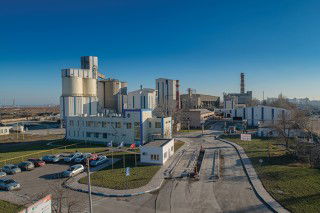Tokyo-based Taiheiyo Cement Corp has completed development of a ship allocation system utilising AI technology provided by GRID Inc with the aim of improving efficiency and streamlining operations.
Improving transportation efficiency has long been a challenge for Taiheiyo Cement. There 140010 combinations of shipping plans to transport cement from each plant to logistics hubs across Japan. Until now, these plans have been made by experienced personnel based on their experience while considering a vast number of conditions, but optimisation was limited. The new ship allocation system analyses large volumes of transportation data and generates optimal ship allocation plans while considering complex constraints. It contributes the following operational improvements:
• reduction in transportation costs – optimises courses and loading efficiency, with an expected 10 per cent reduction of fuel consumption at the planning stage
• enhanced inventory management – ensures optimal inventory levels at each logistics hub, contributing to a more stable supply chain
• faster planning – cuts planning time by more than 50 per cent compared to manual planning methods
• support for workstyle reforms – aiming for efficient shipping plans that also complies with the Seafarers Act
• environmental benefits – promotes fuel savings by increasing transport efficiency, contributing to reduced environmental impact.
Taiheiyo Cement and GRID say they remain committed to further advancing the system, promoting digital transformation, and pursuing efficient operation in shipping. Through these efforts, the companies aim to contribute to workstyle innovation and the realisation of a carbon-neutral society.

